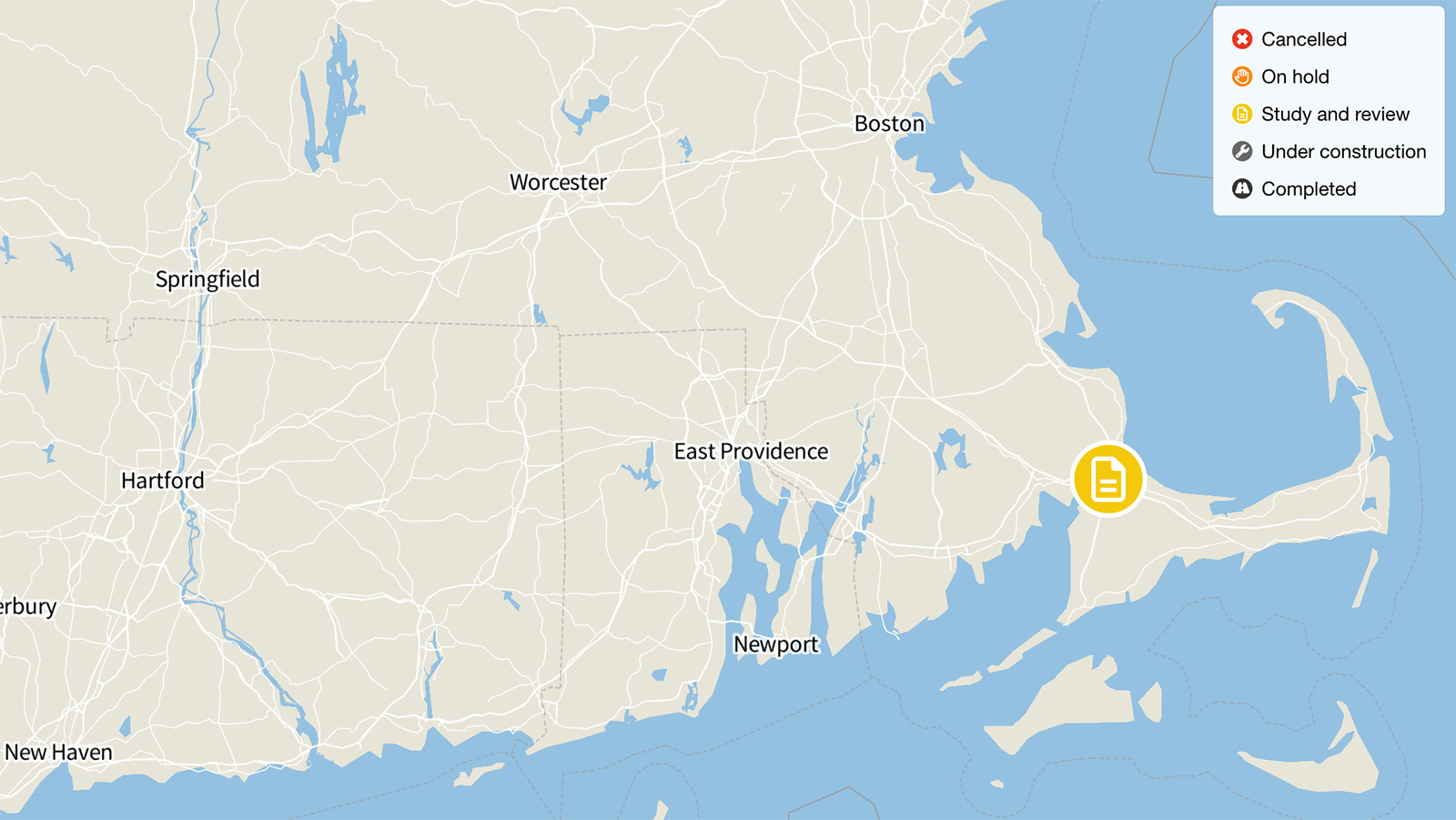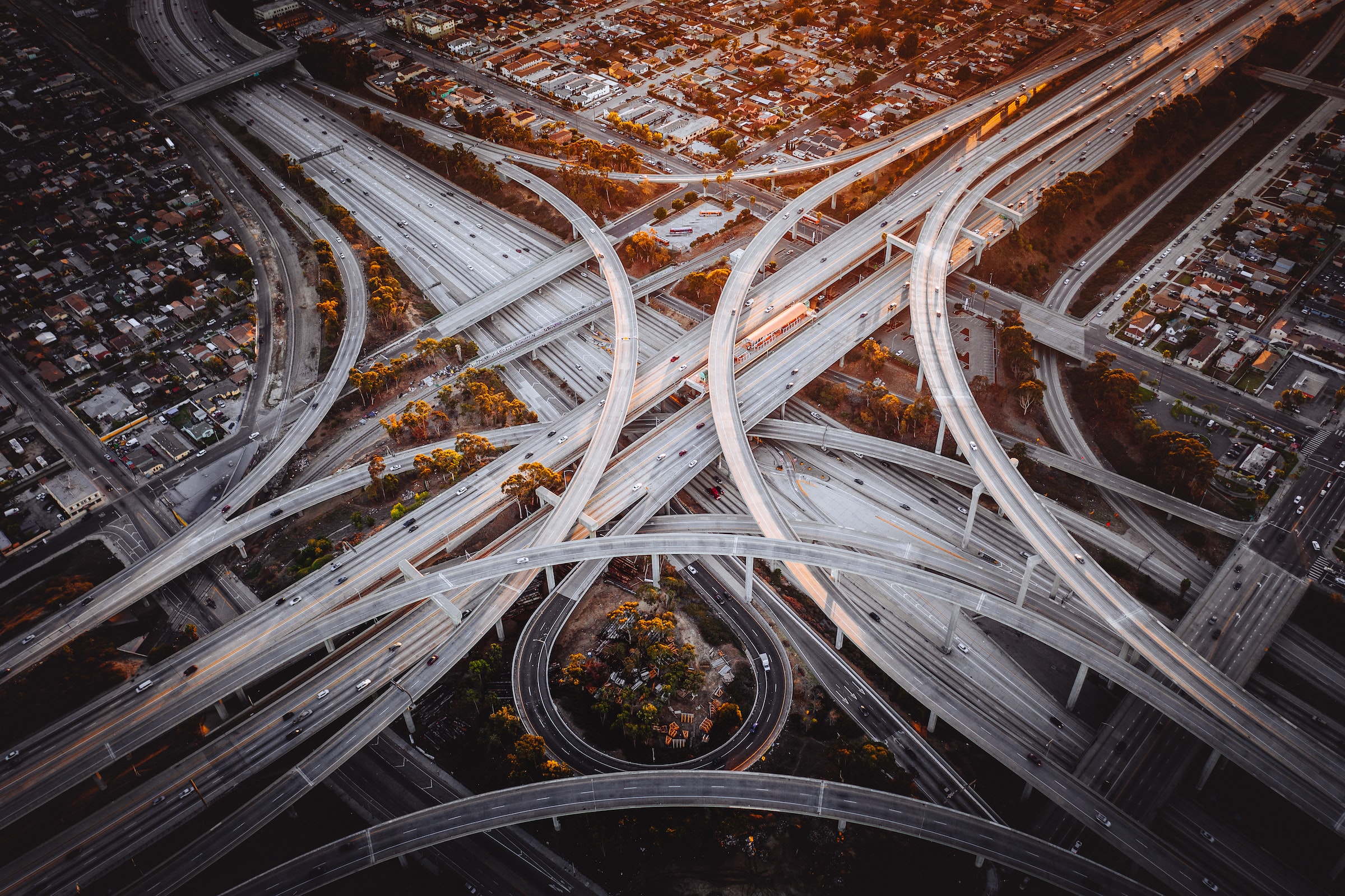
Dallas Trinity Parkway, Texas
The Trinity Parkway is a proposed nine-mile, six-lane urban highway (with tolls) that would run along the Trinity River through the heart of Dallas. Proponents claim that it is needed to relieve crushing regional traffic congestion that they expect will only worsen over time. But planning documents suggest that the $1.5 billion project would have only very limited impact on congestion and would be susceptible to flood damage. A growing chorus of city leaders is asking whether the highway is really compatible with a Dallas that is experiencing major urban revitalization driven in part by expansion of public transportation and quality of life improvements that would be hampered by a vast new highway.
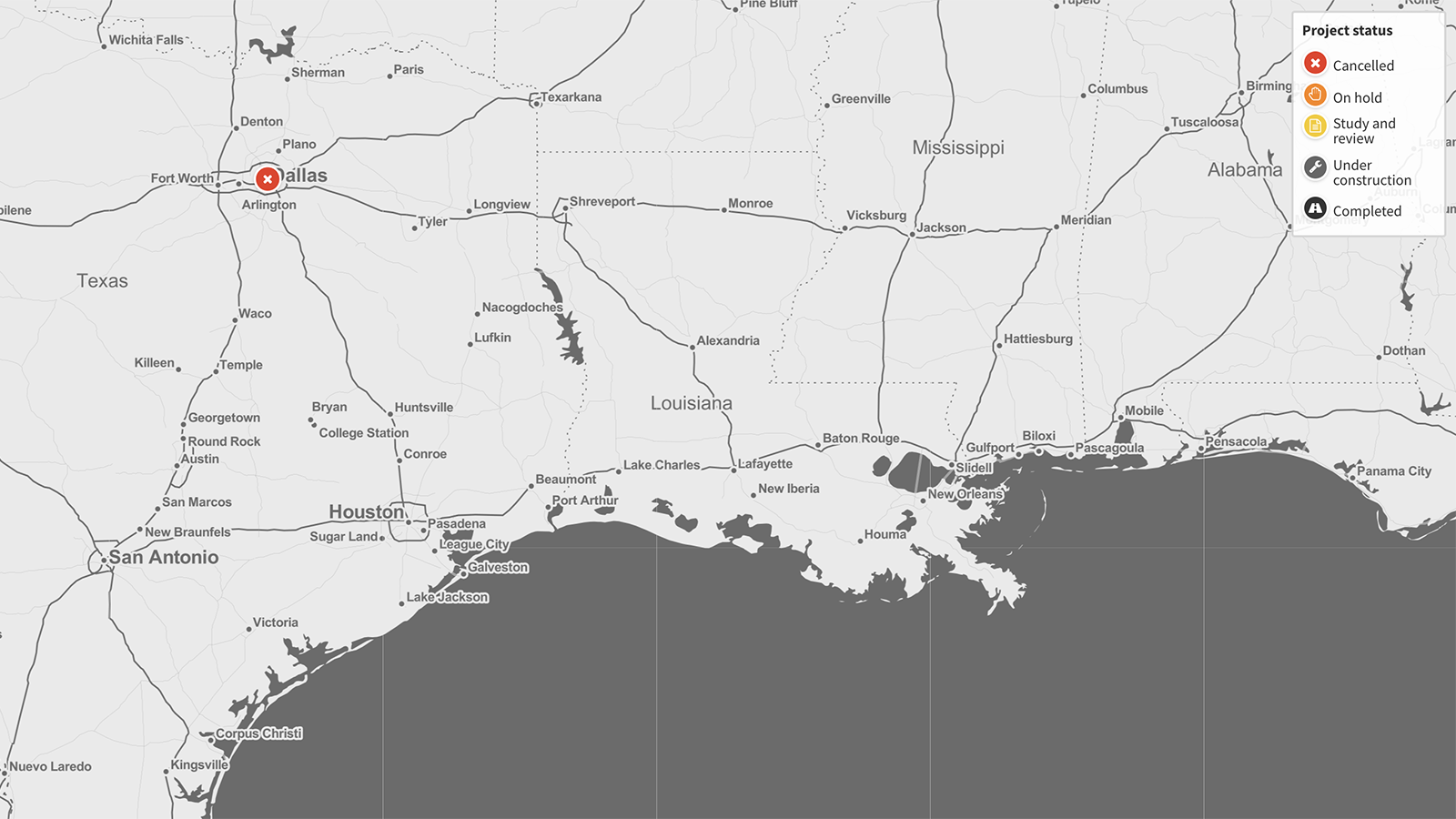
Status: Cancelled
Originally reported cost: $1.5 billion
Update from Highway Boondoggles 5, 2019: Cancelling a highway created new opportunity for nature in Dallas
By ending one bad highway project, Dallas has created an opportunity to provide future generations with a greener, healthier and more enjoyable city.
In 2014, Dallas was moving forward with plans to build the six-lane Dallas Trinity Parkway. As we wrote that year, the $1.5 billion project had a number of troubling elements. Documents suggested it would fail to solve congestion. It was susceptible to flood damage. And the project was squarely at odds with the city’s emerging priorities, including expanding public transit and improving quality of life.
The project also would have meant a major new highway running along the Trinity River Corridor, a wide swath of green that runs through the heart of Dallas. The Trinity River is an important ecological area, sustaining the nation’s largest urban hardwood forest. It is a floodplain that absorbs floodwaters and transforms into an area of wetlands during flood events. And just as the project threatened to cut off Dallas from the river, the area was becoming an increasingly important piece of life for city residents, providing them with parks, trails and other amenities.
But as plans for the highway moved forward, increasingly skeptical city leaders and residents began to speak out against the project. In August 2017, following years of work by local activists, and three years after the Trinity project appeared in the first Highway Boondoggles report, the Dallas City Council killed the project with a 13-2 vote.
Today, with highway plans out of the picture, Dallas is beginning to look toward a future in which it can develop the river area not as a piece of road infrastructure but as a special open space that the whole city can enjoy. The Trinity Park Conservancy is planning a new series of parks along the river. Planners are also looking to ensure that the river can continue to serve its natural role as protection against future floods. As D Magazine writes, the idea behind the new plans is for “fulfilling that very old Trinity River Project ambition of reconnecting Dallas to its river and repositioning it as a civic centerpiece, and not a barrier.”
Update from Highway Boondoggles 4, 2018:
The proposal for a $1.5 billion, nine-mile toll-road along the Trinity River between I-35 and U.S. 75 was swept into a larger conversation about the future of toll roads in Texas and the future of urban development in Dallas. In August 2015, the Dallas City Council voted unanimously to revise and downscale the road to a four-lane version, instead of the previously proposed six-lane toll road. And in August 2017, the Dallas City Council voted 13-2 to pull its support for the parkway, likely ending the project for good.
Original story from Highway Boondoggles, 2014:
The Trinity Parkway is a proposed nine-mile, six-lane urban highway (with tolls) that would run along the Trinity River through the heart of Dallas. Proponents claim that it is needed to relieve crushing regional traffic congestion that they expect will only worsen over time. But planning documents suggest that the $1.5 billion project would have only very limited impact on congestion and would be susceptible to flood damage. A growing chorus of city leaders is asking whether the highway is really compatible with a Dallas that is experiencing major urban revitalization driven in part by expansion of public transportation and quality of life improvements that would be hampered by a vast new highway.
This project has been justified in part by forecasts of rapid growth in traffic in the project area in the decades to come. In most parts of the project area, however, planners are anticipating far greater growth in driving between now and 2035 than actually took place between 2007 and 2012, the most recent years for which traffic data are publicly available. Indeed, traffic actually declined between 2007 and 2012 at eight of 12 specific locations affected by the route where officials forecast traffic to increase by 2035.
The Trinity Parkway is part of a massive proposed highway expansion plan for the Dallas-Fort Worth area, with those additional projects costing as much as another $5 billion. Advocates of the Trinity Parkway have argued that it is an essential piece of that broader plan.
But Dallas community leaders have expressed concerns that building the Trinity Parkway would interfere with other important goals, including the goal of revitalizing downtown Dallas. The highway would run directly next to an area along the Trinity River where wildlife and habitat preservation are in the works, including protection of a 6,000-acre hardwood forest and 4,000 more acres for trails, parks and lakes. Already, Dallas residents are taking advantage of new parks, trails and other amenities along the river, the enjoyment of which would be threatened by construction of a major highway connector.
Even the original proposer of a Trinity roadway is horrified by the plan for a superhighway. Alex Krieger, a planning professor who originally discussed a modest access road outside the levees to approach the nature preserve recently apologized to the Dallas community, saying “a … highway is not the thing to do.”
Some prominent Dallas leaders who originally supported the idea of the Trinity Parkway have changed their minds upon further consideration of what it would do to the fabric of the city. A magazine publisher who had strongly backed the proposal in the late 1990s now says that city officials have had in hand since 2010 “expert advice [saying] not only not to build the [Trinity Parkway] but to tear down, depress or somehow link over most of its existing freeways,” to bolster connections within the community. And he observes that rather than sparking downtown development, highways in Dallas have killed the growth in areas that surround them. A local city-planning advocate in Dallas who for a decade supported the parkway wrote in a June 2014 column for the Dallas Morning News that “I have changed my mind and now confess publicly my opposition to building this highway.” He argued that its construction would jeopardize the successes of recent major “quality of life” investments in the area where the highway would go, including outdoor recreation opportunities. Other developments in the city, such as improved light rail and infill development in urban neighborhoods could also benefit from funding for additional transportation options.
The sacrifices Dallas would need to make in both quality of life and dollars-and-cents do not appear to be worth it for the congestion reduction benefit the project would deliver. According to the project’s final environmental impact statement, the percentage of highway lane-miles in the project area that are subject to traffic congestion is expected to be the same in 2035 regardless of whether the project is built or not. In the aggregate, construction of the highway is anticipated to induce drivers to travel 1 million more vehicle-miles per day in the project area in 2035 compared with a “no build” scenario, with those drivers spending an additional 11,000 hours a day in their cars.


Topics
Find Out More

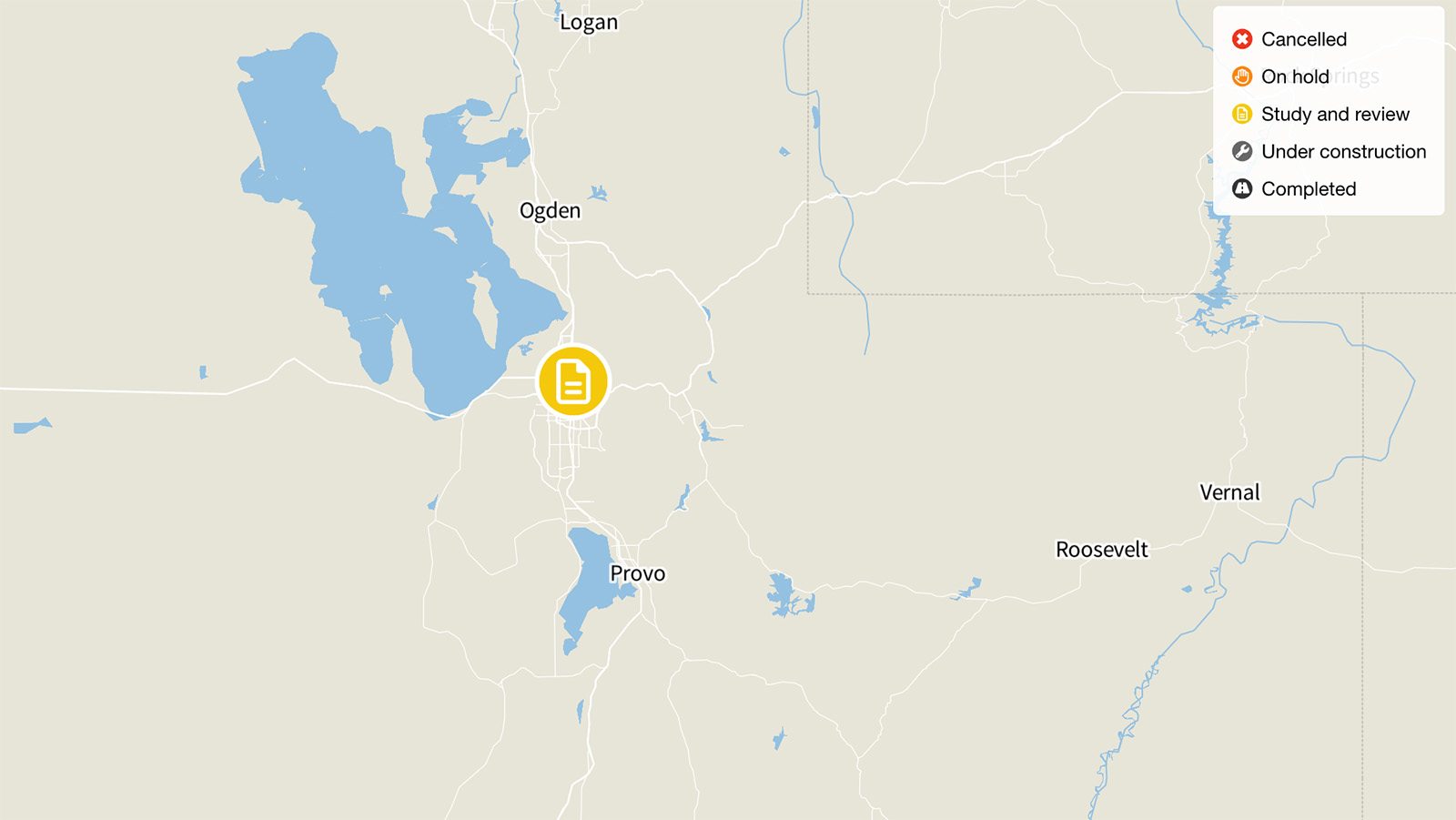
I-15 Expansion, Salt Lake City
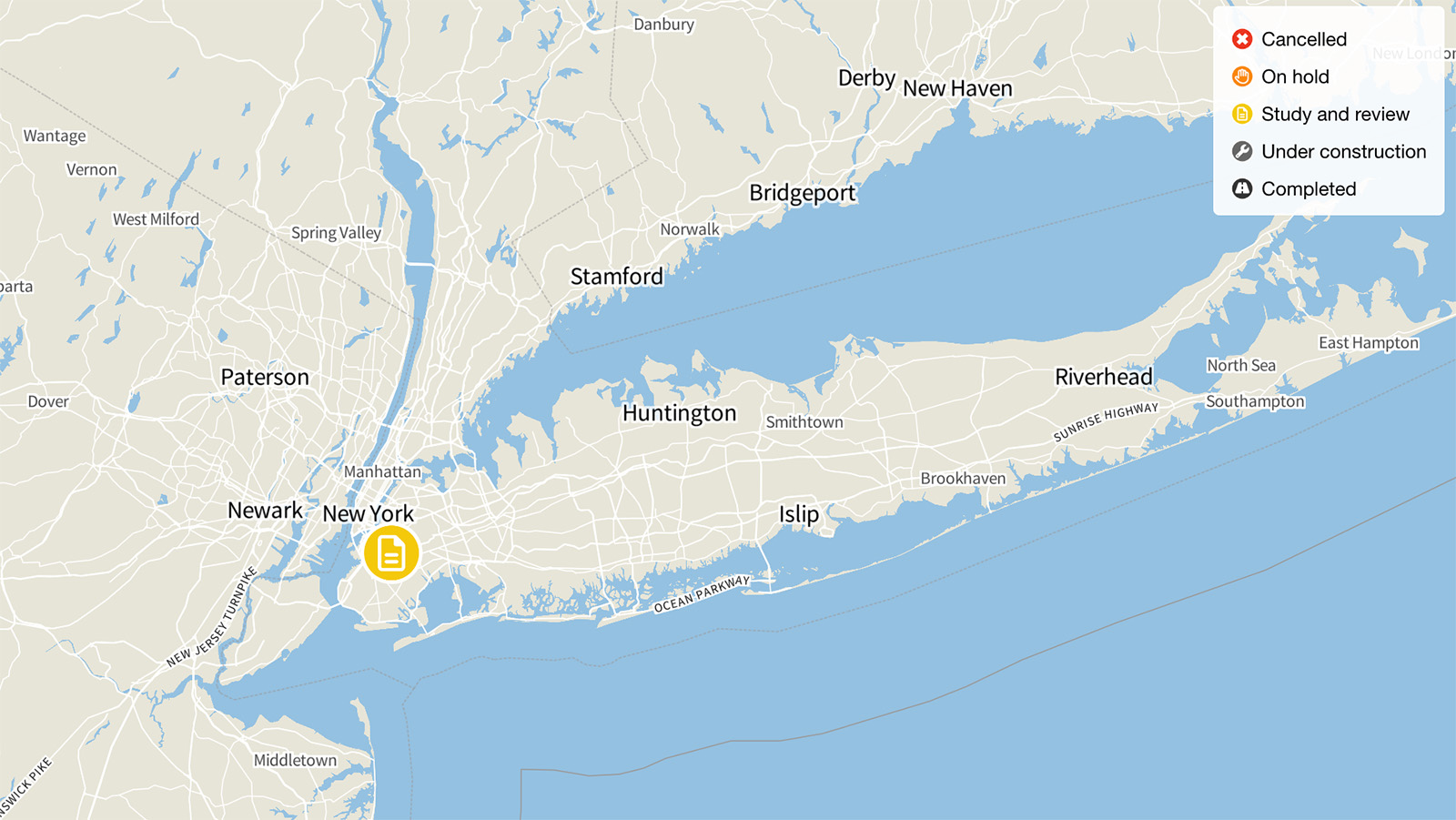
The Brooklyn-Queens Expressway, New York
